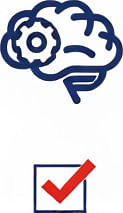Strategies for Productive Doctor Visits with ADHD
 by Thaddeus Blanda
by Thaddeus Blanda
Discover practical techniques to make doctor visits more manageable for adults with ADHD, including preparation tips and focus methods to reduce anxiety and improve outcomes. Learn how simple routines can lead to better health management.

Living with ADHD can present unique hurdles, especially during routine activities like doctor visits. Many adults and young adults find these appointments challenging due to distractions and forgetfulness. By adopting simple techniques, you can turn these moments into opportunities for better health care.
Preparation Techniques
One key to success is creating a clear plan before your appointment. Start by writing down your symptoms and questions in a dedicated notebook. This helps ensure you cover everything important. For instance, if you often forget details, use a checklist to organize your thoughts. A checklist allows you to feel more in control and reduces last-minute stress.
Another helpful step is scheduling visits during times when you feel most alert, such as early morning. This can minimize the impact of fatigue. Additionally, practice deep breathing exercises the night before to calm your mind. These methods build confidence and make the process smoother.
During the Appointment
Once at the doctor's office, maintaining focus is essential. Begin by sharing your prepared notes right away to set a clear agenda. If your mind wanders, try using a simple fidget tool, like a stress ball, to stay grounded. A fidget tool provides a quiet way to channel extra energy without disrupting the conversation.
It's also important to ask for breaks if needed, such as a moment to collect your thoughts. Doctors are there to support you, and communicating your needs fosters a positive interaction. Remember, these strategies are about working with your strengths rather than against them.
Follow-Up Actions
After the visit, take immediate steps to reinforce what was discussed. Jot down key points from the appointment in your notebook as soon as you leave. This creates a reliable record for future reference. Setting reminders on your phone for medications or follow-up tasks can prevent oversights.
Building habits like these over time leads to greater independence. For example, review your notes weekly to track progress and adjust as necessary. By consistently applying these approaches, you can manage your health more effectively and feel empowered in your daily life.
In summary, with patience and practice, doctor visits can become less overwhelming. These techniques offer a supportive path forward, helping you prioritize your well-being and achieve your goals.
